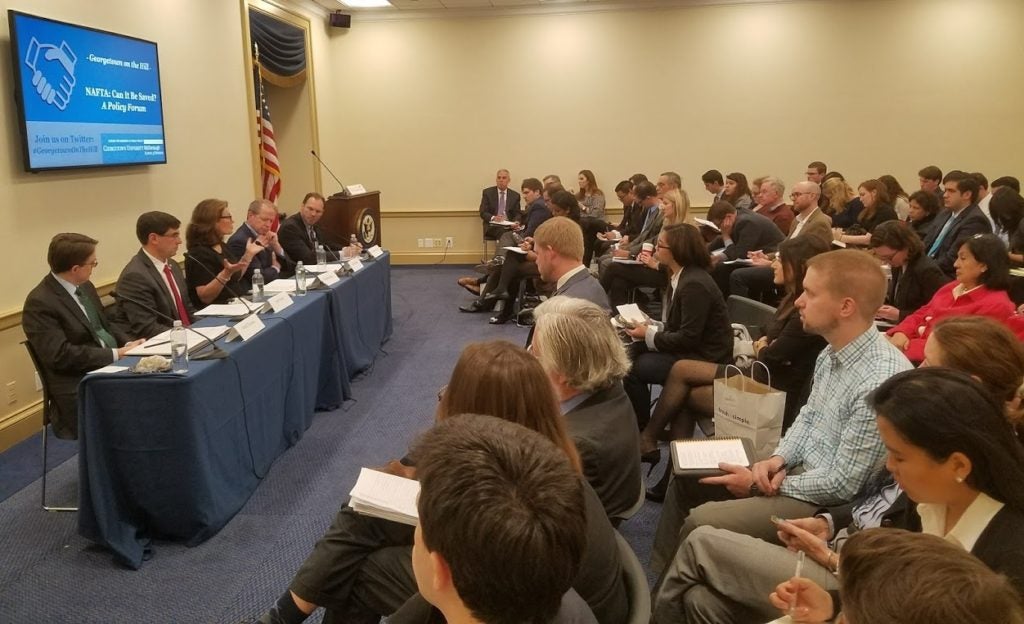CBPP hosts forum on NAFTA renegotiation status
Posted in News | Tagged News - International Trade

On November 8, 2017, the Georgetown Center for Business and Public Policy convened a panel discussion of the status of the current North American Free Trade Agreement (NAFTA) negotiations and the potential implications. President Trump has characterized NAFTA as the worst trade deal ever made. The administration is currently in negotiations with Canada and Mexico to renegotiate NAFTA and has issued statements suggesting the administration is pursuing unconventional and aggressive negotiating positions.
While it would benefit many people to update NAFTA, recent statements by the administration are highly unusual in a trade negotiation.
What would these provisions mean to the U.S. economy? If successful, then what implications would these new provisions have for U.S. industries and workers?
What if the negotiations fail as a result of these unconventional demands?
This policy forum, organized by J. Robert Vastine, Senior Industry Fellow, Center for Business and Public Policy, offered introductory framing remarks, followed by a panel discussion moderated by J. Bradford Jensen, Senior Policy Scholar, Center for Business and Public Policy, and McCrane/Shaker Chair in International Business, Georgetown University McDonough School of Business. Panelists included:
- Christine Bliss, President, Coalition of Service Industries
- Josh Nassar, Legislative Director, United Auto Workers
- David Thomas, Vice President, Business Roundtable
- John Veroneau, Partner, Covington & Burling LLP
Media Coverage
Best Bet on NAFTA? Probably the Status Quo, Former Official Says Bloomberg BNA by Len Bracken (November 9, 2017)
“We are on new terrain here, where the prospect of the president deciding to withdraw the U.S. from a major trade agreement is unprecedented,” John Veroneau, a former deputy U.S. trade representative from 2006 to 2009, said at the panel discussion hosted by the McDonough School of Business at Georgetown University. Christine Bliss, the president of the Coalition of Services Industries, said it was unclear under the Trade Act of 1974 and 1988 what the default agreements would be for different parts of NAFTA if it were to be terminated. Bliss was formerly an assistant U.S. trade representative for services, investment, telecommunication, and electronic commerce. The services provisions in NAFTA are more comprehensive that those in the 1994 General Agreement on Tariffs and Trade and in the 1987 Canada-United States Free Trade Agreement, she said. www.bna.com Subscription required.
